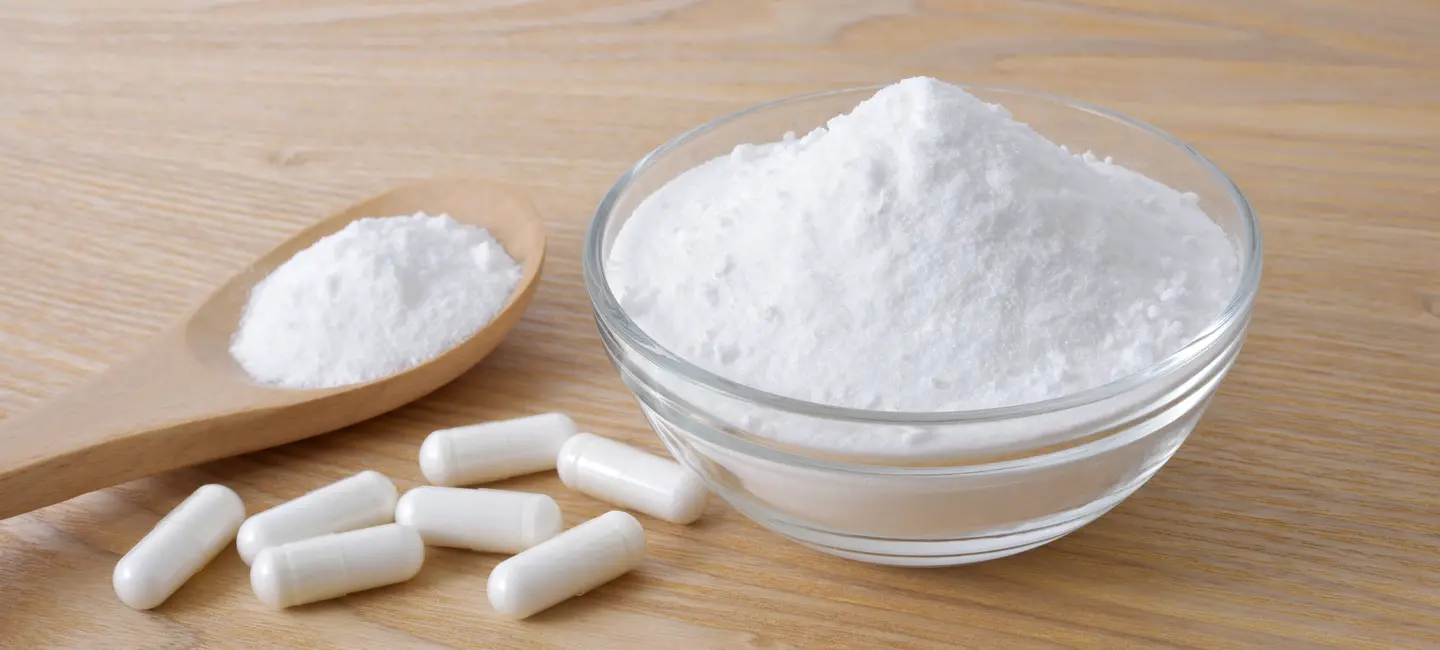
Taurine is a type of chemical called an amino sulfonic acid. It occurs naturally in the body. The best food sources are meat, fish, and eggs.
Taurine has important functions in the heart and brain. It helps support nerve growth. It might also benefit people with heart failure by lowering blood pressure and calming the nervous system. This might help prevent heart failure from becoming worse.
People take taurine for congestive heart failure (CHF) and swelling of the liver (hepatitis). It is also used for obesity, athletic performance, fatigue, diabetes, and many other conditions, but there is no good scientific evidence to support these uses.
Don't confuse taurine with homotaurine. These are not the same.
Is It Effective?
NatMed Pro rates effectiveness based on scientific evidence according to the following scale: Effective, Likely Effective, Possibly Effective, Possibly Ineffective, Likely Ineffective, Ineffective, and Insufficient Evidence to Rate.
- Heart failure and fluid build up in the body (congestive heart failure or CHF). Taking taurine by mouth seems to improve heart function, reduce symptoms, and increase the ability to exercise in people with CHF.
- Swelling (inflammation) of the liver (hepatitis). Taking taurine by mouth might improve liver function in people with hepatitis.
- Obesity. Taking taurine by mouth doesn't seem to reduce body weight in people who are overweight or obese.
There is interest in using taurine for a number of other purposes, but there isn't enough reliable information to say whether it might be helpful.
Is it Safe?
When taken by mouth: Taurine is commonly consumed in foods. It is possibly safe when used as a medicine for up to 3 months.
Special Precautions & Warnings:
Pregnancy and breast-feeding: Taurine is commonly consumed in foods. There isn't enough reliable information to know if taurine is safe to use as a medicine when pregnant or breast-feeding. Stay on the safe side and stick to food amounts.
Children: Taurine is commonly consumed in foods. It is possibly safe when taken by mouth as medicine for up to 12 weeks.
Lithium
Interaction Rating=Moderate Be cautious with this combination.
Taurine might slow down how quickly lithium is flushed out of the body. This could increase levels of lithium that stay in the body. Your healthcare provider might need to lower your dose of lithium.
Medications for high blood pressure (Antihypertensive drugs)
Interaction Rating=Moderate Be cautious with this combination.
Taurine might lower blood pressure. Taking taurine along with medications that lower blood pressure might cause blood pressure to go too low. Monitor your blood pressure closely.
Herbs and supplements that might lower blood pressure: Taurine might lower blood pressure. Taking it with other supplements that have the same effect might cause blood pressure to drop too much. Examples of supplements with this effect include andrographis, casein peptides, L-arginine, niacin, and stinging nettle.
Avoid drinking alcohol while taking taurine supplements or energy drinks that contain taurine. Taurine might increase how much alcohol you want to drink, which increases the risk of alcohol-related side effects.
Taurine is found in foods such as meat, seafood, and eggs. The typical Western diet includes 40-400 mg of taurine daily. It's also a common ingredient in energy drinks.
As medicine, taurine has most often been used by adults in doses of 6 grams by mouth daily for up to one year. Speak with a healthcare provider to find out what dose might be best for a specific condition.
2-Aminoethanesulfonic Acid, 2-Aminoethylsulfonic Acid, 2-Aminoethane Sulfonic Acid, Acide Aminoéthylsulfonique, Acide Kétoisocaproïque de Taurine, Acid Aminoethanesulfonate, Aminoethanesulfonate, Aminoéthylsulfonique, Dibicor, Éthyl Ester de Taurine, L-Taurine, Taurina, Taurine Ethyl Ester, Taurine Ketoisocaproic Acid.
Information on this website is for informational use only and is not intended to replace professional medical advice, diagnosis, or treatment. While evidence-based, it is not guaranteed to be error-free and is not intended to meet any particular user’s needs or requirements or to cover all possible uses, safety concerns, interactions, outcomes, or adverse effects. Always check with your doctor or other medical professional before making healthcare decisions (including taking any medication) and do not delay or disregard seeking medical advice or treatment based on any information displayed on this website.
© TRC Healthcare 2024. All rights reserved. Use and/or distribution is permitted only pursuant to a valid license or other permission from TRC Healthcare.
